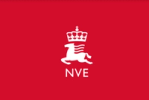Recently the Norwegian Government presented Report to the Storting no. 38, 2001-2002, concerning the oil and gas sector. It shows clearly how important the petroleum sector is for Norway: 23 percent of Norway's gross national product, 32 percent of the central government's income, 22 percent of all investments and 45 percent of the country's exports come from the petroleum sector. That is why the Government is keen to actively commit itself to the future of this sector.
"If the country is to make the most of the petroleum resources we have, we need a proactive attitude to managing the continental shelf and developing new technology. After 30 years' petroleum activities only 25 percent of the extractable resources has been produced. We envision that there will be petroleum activities in Norway for another hundred years," says Einar Steensnæs, the Minister of Petroleum and Energy.
Two paths


The government outlines two different development paths. One is called the path of disintegration and the other is called the path of long-term development. The difference is that the path of disintegration continues where we are today without a commitment to future technology, whereas the path of long-term development is a proactive commitment to research and technological development, resulting in an efficient exploitation of the petroleum resources on the continental shelf. In the Report to the Storting the difference between the two development paths is approximately NOK 2,000 billion (in 2002 kroner) up until 2050.
"Today there is virtually no discussion on how to increase the value creation from the Norwegian petroleum sector. The focus is on how we should manage the income from petroleum activities. Given the prospects the Norwegian continental shelf represents and the expertise that the Norwegian petroleum sector possesses, oil and gas policy needs a completely different basis: It must be proactive," says Steensnæs.
Make the most of the resources
The government is concerned with how Norway can best exploit the resources remaining and guarantee continued prosperity and industrial development for many years to come. The Report to the Storting emphasises that it would require a lot to reach the objectives set for the long-term development path. Although this is primarily a task incumbent on the oil and gas industry, the resource potential on the Norwegian continental shelf will not be fully realised without a proactive policy in place to develop the sector further. According to the Report, a lack of willingness to make a commitment will result in considerably lower value creation and income for the Norwegian state and society than what these activities can potentially yield.
The government has therefore set the following goals for its oil and gas policy:
· To ensure that the petroleum sector will be a key contributor to the Norwegian welfare state and provide for industrial development in the entire country.
· To develop the petroleum sector further and ensure that the continental shelf remains an attractive area for investments, value creation and industrial development in Norway.
· To pursue a proactive environmental and natural resource policy based on the goal of a sustainable petroleum sector and coexistence between the petroleum sector, other industries and environmental considerations.
· For the petroleum industry to lead the way in the areas of health, environment and safety at all levels in the sector. HES efforts are to be in a process of continuous improvement.
· To help to internationalise the Norwegian oil and gas industry.
Investing for the future
The Norwegian Oil Industry Association (OLF) is generally satisfied with the Report as it was presented. "The authorities need to follow up their proactive plans with practical action, and adjust the industry's framework conditions so that the continental shelf will continue to be attractive to new investments," says Per Selnes, the deputy director general of OLF. He points out that during the last licensing round there was decreasing interest from international oil companies. "We are keen to develop new technology and implement environmental improvements that can bring about sustainable development."
An important part of the efforts going forward is the collaboration between central government authorities, the oil companies and the supplier industry through the OG21 initiative, Oil and Gas for the 21st Century. The Report to the Storting notes that these strategic efforts will form the basis for further technological developments in the continental shelf.
The Government envisions the work being carried out in several phases: strategy work (OG21), industrial R&D, demonstration projects (such as the Demo 2000 projects) and finally the industrial exploitation of the skills acquired and turning them into products.
Although the Report to the Storting does not promise any monies for R&D, it underscores that these will be allocated in next year's state budget, Proposition to the Storting no. 1 2002 -2003. However, in the Sem Declaration, which is the basis for the current Government, extra funds have been promised to research and development. But as a director of department in the Ministry of Petroleum and Energy says, "It isn't easy to convince the Ministry of Finance of the usefulness of investing for the future."




